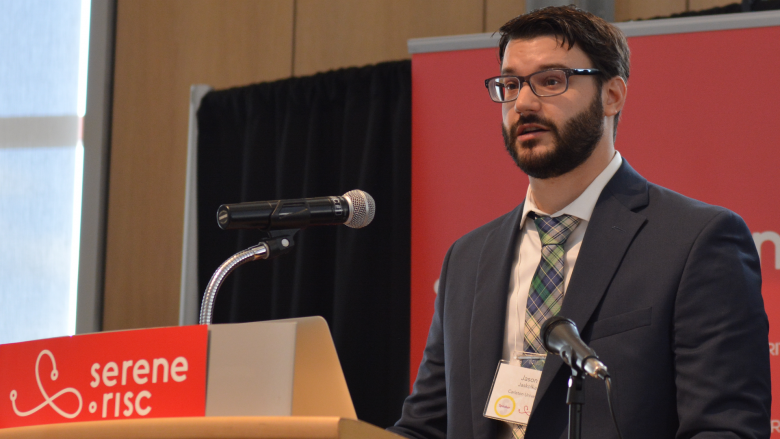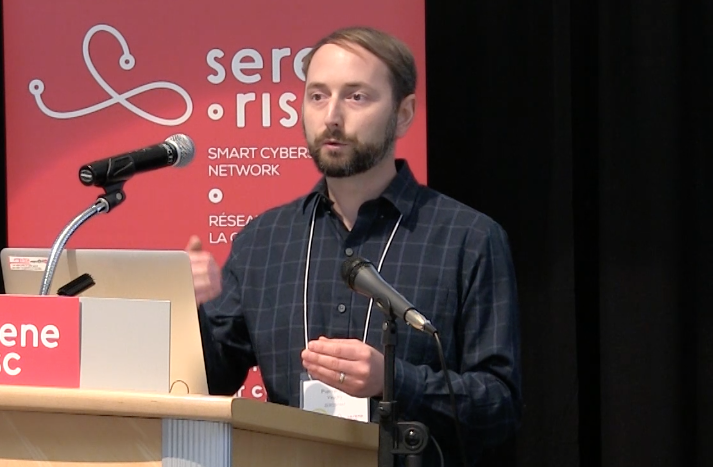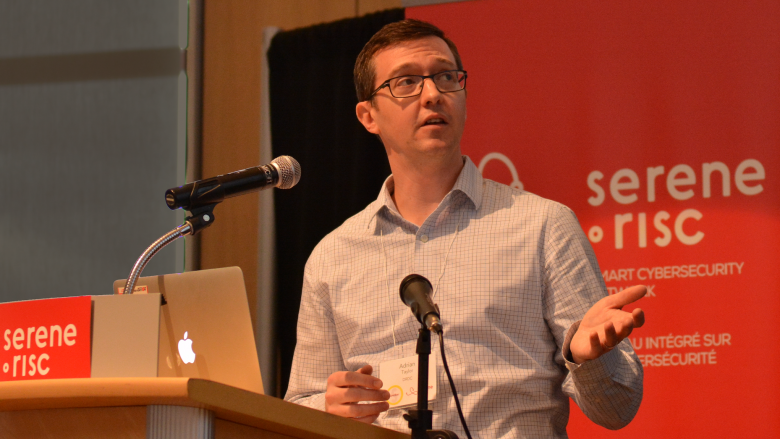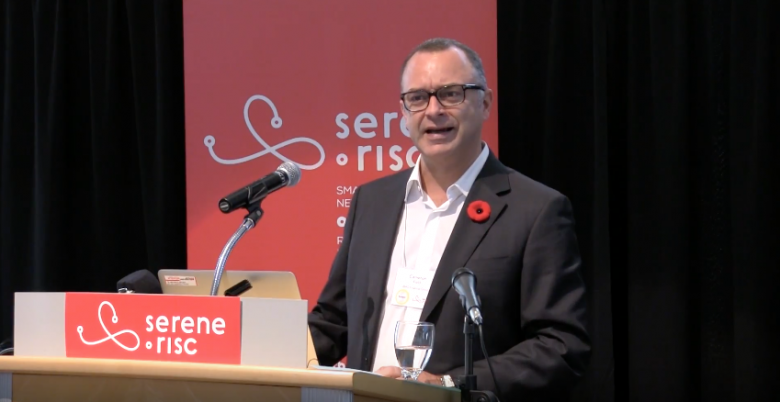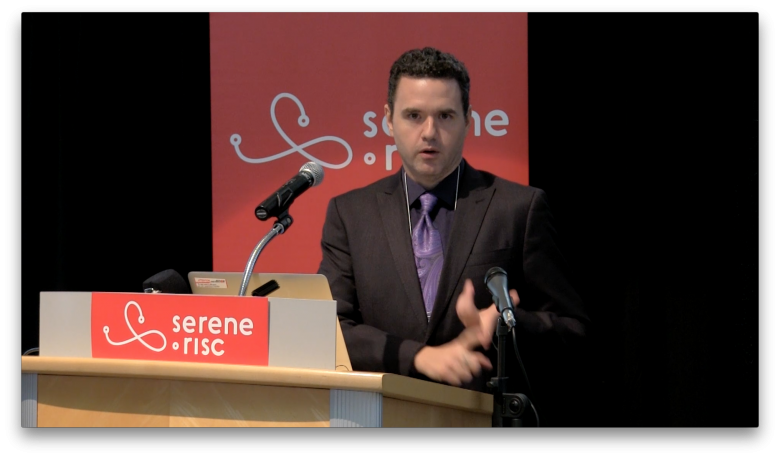Presented at the SERENE-RISC Workshop October 2017 Jason Jaskolka Carleton University Many of today’s most critical systems such as those found in the transportation, financial, medical, communications, and national defense domains are becoming more complex and interconnected. Because of this, there is an increasingly critical need for ensuring the security of these systems and the …
Presented at the SERENE-RISC Workshop, October 2017. Scientific Director Benoît Dupont reports on SERENE-RISC activities for the past 4 years of cybersecurity knowledge mobilization in Canada and provides insight on what we have planned for the future. SERENE-RISC has surpassed expectations due to the support of our network members to provide innovative resources and …
Harassment on online social media services or social networking sites is a growing issue and in particular, as there are a large number (1/5th) of Canadian adolescents that suffer victimization it is something that we should be looking at very seriously. Kathleen Van Royen, Karolien Poels and Heidi Vandebosch from Belgium and Philippe Adam from …
Can we do research with data that is leaked or stolen and dumped on the internet? This is an ethical question that is difficult to answer as it quickly gets complicated. Unfortunately, WWJD? is of no help in a lot of situations. Ideas about research ethics developed before the information age can fall short where …
Presented at the SERENE-RISC Workshop, 2017 October Spam detection software can use both handcrafted rules and machine learning techniques. At ZEROSPAM we are aiming at reducing the need to create or edit rules manually to adapt to constantly evolving email-borne threats. At the same time, the performance of our machine learning tools could be improved …
Presented at the SERENE-RISC Workshop, 2017 October. Detecting anomalies on the automotive control bus with machine learning. Cars are vulnerable to hacking. While automotive cyber attacks are not yet a widespread threat, learning how to detect them will be an important part of future countermeasures. Attacks must be crafted for specific models, so attack detectors must …
Presented at the SERENE-RISC Workshop, 2017 October Academics, scientists, private sector and public sector actors have long relied on sociodemographic data, marketing data and other typological clusters to set context, variables and other tools in their respective research efforts. Whether its cutting edge emergency medicine research or dated law enforcement research from the 1970s, sociodemographic …
Thomas J. Holt – Surveying the State of Research On Policing Cybercrime: Local to Transnational Gaps
Presented at the SERENE-RISC Workshop, 2017 October. This presentation will provide an overview of the current state of criminological scholarship on policing cybercrimes. The current body of knowledge regarding line officers’ perceptions of cybercrime will be considered, as well as our knowledge of the specialized roles of forensic examiners. The limitations of this research will be considered, along with possible …
Presented at the SERENE-RISC Workshop, 2017 October Instances of cybercrime are now a daily occurrence and many of these attacks affect us all. The threat landscape is constantly changing and evolving and the threat actors are no longer “hackers” lurking in the shadows. Cyber-attacks have been shown to cause mass disruption, widespread panic, and in …
Presented at the SERENE-RISC Spring Workshop 2016 The intersection of traditional professional investigations and cybercrime investigations. Professional investigators are finding they have to know more about cybercrime investigations and cybercrime investigators are discovering that they have to know more about the law and professional investigations. This presentation will discuss local and multinational investigations, who should …

